Send Us Your News
To submit a class note, email us or submit mail to UVA Lawyer, University of Virginia School of Law, 580 Massie Road, Charlottesville, VA 22903. Please send your submissions no later than Aug. 1 for inclusion in the next issue.
1980
In August, Martha Ellet married George L. Hastings Jr. in a small ceremony in Alexandria, Va.
Jonathan Rusch was named director of the U.S. and International Anti-Corruption Law Program at the American University Washington College of Law.
1982
Phi Beta Kappa’s New York Association chose Allen Boyer’s essay as the winner of their annual essay contest. The essay, “Loving Learning at the Division of Enforcement,” was featured in the society’s Key Reporter publication.
In Memoriam: Thatcher Stone ’82, Aviation Lawyer, Lecturer and Philanthropist
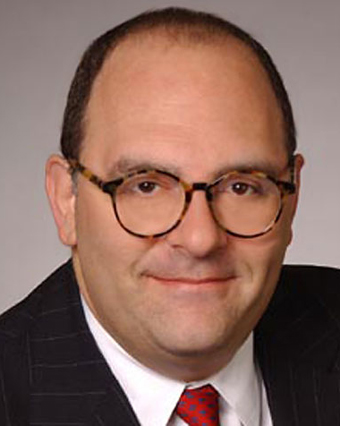 Thatcher A. Stone ’82 (Col ’78) died at age 67 on Nov. 29 while traveling in Israel. He leaves a lasting legacy at his alma mater, where he also taught aviation law and made significant development gifts.
Thatcher A. Stone ’82 (Col ’78) died at age 67 on Nov. 29 while traveling in Israel. He leaves a lasting legacy at his alma mater, where he also taught aviation law and made significant development gifts.
For 32 years after graduating from UVA Law, Stone practiced law on Wall Street in the areas of finance, banking and asset-based lending, with an emphasis on secured financing related to intercontinental jet aircraft. He advised the Export-Import Bank of the United States for 25 years on loans for foreign aircraft buyers and, after the 9/11 attacks on the World Trade Center, he advised EXIM and the White House on global war risk insurance issues arising from the attacks.
The Thatcher A. Stone Garden was dedicated in 2010 after Stone pledged a generous donation to the Law School in 2009. The Philip M. Stone Dining Room, dedicated in 2002, was named for his father, who died when Thatcher was a child.
The Lillian Stone Distinguished Lecture, which is hosted jointly by the Law School and the School of Architecture, was named for his mother. Lillian Kolodiz Stone, who died in 2013, was the first female chemical engineering graduate of Northeastern University and served as chief of environmental project review at the U.S. Department of the Interior for 25 years.
In 2004, Stone made headlines—and new legal precedent—when he successfully sued Continental Airlines after getting bumped from a flight without appropriate compensation.
In 2013, he relocated his solo practice from New York to Charlottesville. He founded Stone & Woodrow in 2015, adding passenger litigation and personal injury to his corporate and aircraft transaction portfolio.
He retired from the firm in May 2022 but remained of counsel, according to his firm bio.
His commitment to Charlottesville and UVA preceded his law firm’s move, however. He began teaching aviation law at the Law School in 2005, served on the Law School’s Alumni Council and at one point chaired the selection committee for Jefferson Law Fellows. He also served on two nonprofit boards in Charlottesville, including UVA’s Fralin Museum of Art.
His closest friend, Frank Kittredge Jr., a 1978 graduate of UVA’s School of Architecture, worked with Stone on two side-business opportunities, including one they turned into a philanthropic trust dedicated to supporting UVA. (Kittredge is the former chair of the UVA School of Architecture Foundation Board, on which Stone also served.)
In addition to funding the Stone Garden, Stone Dining Room and the Stone lecture, the trust endowed the Clay Thomas Memorial Scholarship, memorializing a college friend of Stone and Kittredge’s. The trust has also given pledges and gifts to fund the Kolodiz directorship of the Jewish Studies Program in the College of Arts & Sciences and the Rachel Winer Manin interdisciplinary graduate fellowship in Jewish Studies.
Law School Foundation President and CEO Luis Alvarez Jr. ’88 said Stone “was a great and special friend of the Law School, loyal to his classmates and a tireless promoter of our efforts.”
“He was never without his UVA cap or tie, and always led with his heart,” Alvarez said. “I speak for all who knew Thatcher in saying he was one of a kind and will be missed.”
—Melissa Castro Wyatt
1983
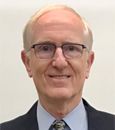 Peter W. Adler teaches international law at Vermont Law School, and international law, business law and international business at the University of Massachusetts, where he won an award in 2016 for excellence in teaching. Adler has published 10 law review articles opposed to unnecessary male and female genital cutting, including “Circumcision Is Unethical and Unlawful” with colleagues in the Journal of Law, Medicine & Ethics. This year, Adler published a book incorporating his ideas, “Circumcision Is a Fraud: And the Coming Legal Reckoning.” The book argues that unnecessary genital cutting, male or female, violates a child’s right to bodily integrity and self-determination, which supersedes parents’ religious and other rights, and that physicians, hospitals and American medical associations do not tell parents the truth about circumcision, creating a fraud cause of action for parents.
Peter W. Adler teaches international law at Vermont Law School, and international law, business law and international business at the University of Massachusetts, where he won an award in 2016 for excellence in teaching. Adler has published 10 law review articles opposed to unnecessary male and female genital cutting, including “Circumcision Is Unethical and Unlawful” with colleagues in the Journal of Law, Medicine & Ethics. This year, Adler published a book incorporating his ideas, “Circumcision Is a Fraud: And the Coming Legal Reckoning.” The book argues that unnecessary genital cutting, male or female, violates a child’s right to bodily integrity and self-determination, which supersedes parents’ religious and other rights, and that physicians, hospitals and American medical associations do not tell parents the truth about circumcision, creating a fraud cause of action for parents.
Adler’s law review articles have provided the foundation for three lawsuits. The first, in federal court in Florida, argued that circumcision is unlawful. The second, filed in 2020, argued that it is unlawful for Massachusetts Medicaid to have been funding circumcision, possibly for the last 50 years, without requiring proof of medical necessity. The plaintiff taxpayers prevailed in the lower court but lost on appeal, leaving it to be resolved in litigation in another state in which the court decided the matter for the plaintiffs. David Llewellyn ’79 is co-counsel in the third suit, pending in federal court in New Jersey, which accuses the American Academy of Pediatrics of issuing fraudulent circumcision guidelines.
R. Bradford Bailey continues to practice state and federal criminal defense work in Boston, as Brad Bailey Law. He was named to Best Lawyers in 2022 and was again voted a super lawyer in the field of white-collar criminal defense. Bailey was also named to Boston magazine’s top lawyer list for white-collar criminal defense.
Debby Baum wrote that she is still enjoying practicing law. Baum, the global head of litigation for Pillsbury, said she is “honored” to serve on the D.C. State Committee for the D.C. section of the American College of Trial Lawyers.
Robert Ray Dively died July 11 at his home in Summerville, S.C., after a sudden illness. Dively was born in Bellwood, Pa., on March 5, 1958, but his family moved to Springfield, Va., when he was 6 months old. He graduated from Annandale High School, where he served as editor of the newspaper and was an avid cross-country runner. He also was an Eagle Scout.
Dively attended UVA from 1976-1983, receiving degrees in political and social thought with high distinction, studying in a directed studies program under Professor Larry Sabato. He served as a Law School representative for the UVA Honor System and as president of the Jefferson Literary and Debating Society.
Upon graduation, Dively joined his father, Robert Roy Dively, at Dively & Thompson in Tysons, practicing real estate, family, and trusts and estates law until being appointed in 1999 as an assistant attorney general for Virginia by then-Attorney General Mark Earley. Upon departing the Virginia AG’s office in late 2000, Dively served for six years on the Fairfax County Board of Zoning and until retirement practiced eminent domain law, including representing the Virginia Department of Transportation. Dively was actively involved in the Fairfax County community, serving three terms on the Fairfax County Bond Committee and two terms on the Superintendent’s Community Advisory Committee as coordinator of the Sully Community Coalition. He was also appointed by then-Gov. James Gilmore ’77 to serve on the State Executive Council for At-Risk Youth and Families. For his many community services to the Sully District Community, the Fairfax Board of Supervisors named him “Lord Fairfax” in 2001.
For 36 years, Dively was married to Kathy Dively (née Derdevanis), with whom he shared travel adventures, abundant and constant laughs, and several wonderful rescue dogs. He ran marathons starting at age 39. He enjoyed being a Scout leader for Troop 577. In addition to his wife, Dively is survived by four children and five grandchildren.
Robert Latham was elected chairman of the international board of ARTICLE 19, an organization that promotes freedom of expression and freedom of information. The London-based nongovernmental organization has 10 offices around the world and takes its name from Article 19 of the U.N. Universal Declaration of Human Rights. Latham practices with Jackson Walker in Dallas, focusing on media law and intellectual property litigation. He is a published author and frequent speaker on matters related to the rights of free speech, technology and IP litigation, advocacy and litigation strategy, dispute resolution and sports.
1984
Catherine Currin Hammond and Cynthia Oliver traveled to Egypt and Jordan in October. Through their travels since law school, the two have explored Bosnia, Croatia, Greece, Peru and South Africa.
John M. Paris Jr. was recognized in Virginia Business magazine as a “legal elite” in business law. Paris practices with Williams Mullen in Virginia Beach.
Louis Rogers was honored by the National Multiple Sclerosis Society as a recipient of the 2022 Frank N. Cowan Silver Hope Award in recognition of his significant contributions to the Richmond, Va., community, including those whose lives have been affected by the unpredictable challenges of MS.
Mary Nash Kelly Rusher, managing partner of McGuireWoods’ Raleigh, N.C., office, can claim more than a century of family ties to UVA. Her daughter, Kelly, graduated as an undergraduate in 2016 and works in Raleigh as a social worker, but Rusher’s ties to the Law School stretch far back. She wrote that her father, Joseph Kelly ’35, “was a ‘real’ lawyer who argued in the U.S. Supreme Court in one of his last cases before retirement.” His father, Joseph Luther Kelly, was a member of the Class of 1889 and twice served as a Supreme Court of Virginia justice. The law roots go back even further: “His dad, John A. Kelly, rode the circuit in southwest Virginia in the 1800s. It was a good run of Kellys practicing law while it lasted!”
Willis P. Whichard LL.M. ’84, S.J.D. ’94 of Chapel Hill, N.C., wrote “A Consequential Life: David Lowry Swain, Nineteenth-Century North Carolina, and Their University,” published by the University of North Carolina at Chapel Hill Library. Swain was the state’s 26th governor and served as president of UNC for more than three decades.
1985
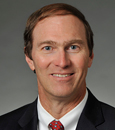 Matthew A. Mace, a shareholder in Baker Donelson’s Baltimore office, was recognized as a leading practitioner in the 2022 Chambers High Net Worth Guide, which covers the private wealth market. Mace earned Band 1 ranking in private wealth law.
Matthew A. Mace, a shareholder in Baker Donelson’s Baltimore office, was recognized as a leading practitioner in the 2022 Chambers High Net Worth Guide, which covers the private wealth market. Mace earned Band 1 ranking in private wealth law.
Christopher J. Winton teaches estate planning as an adjunct faculty member at the University of Charleston in West Virginia.
1986
Ann Peldo Cargile was elected president of the American College of Real Estate Lawyers. ACREL is the preeminent association of commercial real estate lawyers in the United States, focused on service to clients, colleagues and the profession. The college gathers lawyers distinguished for their skill, experience, and high standards of professional and ethical conduct in the practice of real estate law, who will contribute substantially to the accomplishments and achievements of the college, and to the best interests of the bar and the general public.
Bruce Hamilton retired from Teague Campbell in Raleigh, N.C., at the end of last year and has since started a mediation firm. His wife and classmate, Jennifer Weiss, writes poetry and is a high-impact literacy tutor at a local Title I elementary school. Their son, Max, recently joined Davis Graham & Stubbs in Denver, and their daughter, Anna, is working on a Ph.D. in counseling psychology at Boston College.
In Memoriam: U.S. Rep. A. Donald McEachin ’86, Democratic Congressman
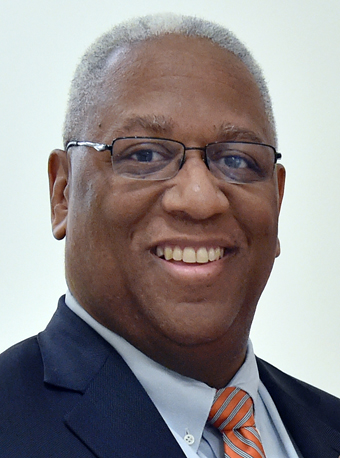 U.S. Rep. A. Donald McEachin ’86, died Nov. 28 of colorectal cancer, just weeks after he was reelected to a fourth term in Congress. He was 61.
U.S. Rep. A. Donald McEachin ’86, died Nov. 28 of colorectal cancer, just weeks after he was reelected to a fourth term in Congress. He was 61.
McEachin, a Democrat representing Virginia’s 4th District, devoted more than 20 years to serving the people of Virginia. He was first elected to the House of Delegates in 1995, serving three terms, and also served two terms in the state Senate before deciding to run for Congress. In the General Assembly, he championed gun control measures and legislation to close substandard landfills and to create the Offshore Wind Development Authority. In Congress, he worked on issues aimed at helping the indigent, improving the environment, expanding access to health care, and national defense and the military workforce.
He described his path to public service and his career in a talk at UVA Law while receiving the inaugural UVA Black Law Students Association Alumni Spotlight Award in 2018.
The son of an Army officer and schoolteacher, McEachin was born in Nuremburg, Germany, and later moved to Vicenza, Italy, before settling in Virginia. He recalled peppering his family with questions about why they had to move so often, what NATO was about and the role of government. Soon, the idea of becoming a lawyer took seed.
“And I’m like, ‘Well, what do you have to do to be a congressman?’ Now remember, this is the 1960s. And so [my parents] say, ‘Well, you have to be a lawyer.’ … And so, my course was set early on to be a lawyer and to go into public service.”
After earning his undergraduate degree in political science at American University, he studied law at UVA, where, as a member of the Black Law Students Association, he urged the hiring of more Black faculty members and lobbied to ban firms from recruiting at UVA if they had not demonstrated a commitment to hiring Black lawyers.
Professor Alex M. Johnson Jr., who taught McEachin, said he was among a group of African American students in that era who reached across differences and made a meaningful impact in the community.
“He had a huge personality and a way of making connections with others that was effortless,” Johnson said. “Big Don, as he was then called, was unforgettable and a true and valuable ambassador for this Law School. He will be sorely missed.”
S. Bernard Goodwyn ’86, now chief justice of the Supreme Court of Virginia, met McEachin the first day of law school and the two had been close friends since.
“In law school, we often talked of our dream to serve the commonwealth of Virginia and our desire to do what we could to make it a better place than we found it,” Goodwyn said. “Don lived his dream to serve. He was a gentle giant with a keen intellect and an obvious passion for helping others. He was a great lawyer and a dedicated, hard-working public servant who was passionate, tireless and relentless in his service to the commonwealth of Virginia and our nation.”
After law school, McEachin’s first job was working as an insurance defense lawyer at Browder Russell Morrison Butcher. When the law firm suddenly dissolved a few years later, he launched his own law firm, McEachin and Gee, in 1990, again focusing on insurance defense work before turning fully to plaintiffs-side insurance litigation.
Running his own firm gave him the flexibility to enter politics as well. After losing his first race in the House of Delegates in 1991, he pulled off an upset in 1995, beating the House appropriations chair in the Democratic primary.
In 2001 he ran for a new role, as state attorney general. He won the nomination, becoming the first Black major-party nominee for the role, but lost the general election. Afterward, he took a break from politics.
“That was a wonderful, wonderful loss because I didn’t really understand what I was doing,” he said. It gave him time to focus on earning what he called “economic independence”—and begin studying for a master’s in divinity from Virginia Union University, which he earned in 2008.
After being elected to Congress in 2016, he felt he needed to pinch himself to believe he had really arrived, McEachin told UVA Lawyer in an interview. “But there’s work to be done.”
Though McEachin felt strongly about Democratic issues, he suggested that compromise was still critical to politics.
“You just have to understand that the word ‘compromise’ is not a bad word. It’s the only way that a country this big and this diverse can ever work,” he said. “You have to have some sort of relationship with the person on the other side that goes beyond just being a legislator.”
McEachin is survived by his wife, Colette McEachin ’85, commonwealth’s attorney for the city of Richmond; their three children; and one grandchild.
—Mary Wood
1987
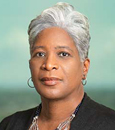 Kim Boyle was named in Benchmark Litigation’s 2022 Top 250 Women in Litigation, marking her fourth year on the list. The guide also recognized Boyle as a local litigation star and labor and employment star (see “The Last Word”).
Kim Boyle was named in Benchmark Litigation’s 2022 Top 250 Women in Litigation, marking her fourth year on the list. The guide also recognized Boyle as a local litigation star and labor and employment star (see “The Last Word”).
Boyle has been a leader in both the legal field and the community for more than 30 years. In addition to serving on the boards of Touro Infirmary, Greater New Orleans, New Orleans Business Alliance, Amistad Research Center, Tulane University and Dillard University, she’s the vice managing partner of Phelps Dunbar’s New Orleans office.
John Bridgeland is one of a bipartisan group of former directors of the White House Domestic Policy Council from the last three presidential administrations who joined together to co-chair Dignity.us, a bipartisan citizens’ initiative to address hate-fueled violence in America. The initiative invites citizens to be a part of addressing the country’s violence crisis by sharing their ideas and testimonials to uncover and spread insight and solutions.
David L. Dallas Jr. was recognized in Virginia Business magazine as a “legal elite” in business law. Dallas practices with Williams Mullen in Charlottesville.
Calvin W. (Woody) Fowler Jr. was recognized in Virginia Business magazine as a “legal elite” in civil litigation. Fowler practices with Williams Mullen in Richmond.
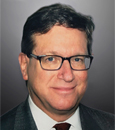 Stephen “Steve” Pershing joined Kalijarvi, Chuzi, Newman & Fitch in Washington, D.C., after a long career in civil rights litigation. From the late 1980s to the mid-1990s, Pershing developed and litigated civil rights and liberties cases as legal director of the Virginia ACLU and has served on its legal panel ever since. From 1996-2005, he was a senior attorney in the Civil Rights Division of the U.S. Department of Justice, litigating for minority voting rights across the nation. After leaving the DOJ, Pershing served for four years as senior counsel at the Center for Constitutional Litigation, in Washington, D.C., a boutique firm aligned with the plaintiffs’ trial bar that litigates civil justice issues nationwide under the U.S. and state constitutions. For more than 20 years, Pershing has taught voting rights law as an adjunct professor at the George Washington University Law School, William & Mary Law School and American University’s Washington College of Law. From 2009-11, he was the first full-time director of the UCDC Law Program, an intensive Washington semester program for the law schools of the University of California, and in 2011, he founded a similar program of his own as a nonprofit consortium of law schools. Before joining KCNF, Pershing was a solo practitioner.
Stephen “Steve” Pershing joined Kalijarvi, Chuzi, Newman & Fitch in Washington, D.C., after a long career in civil rights litigation. From the late 1980s to the mid-1990s, Pershing developed and litigated civil rights and liberties cases as legal director of the Virginia ACLU and has served on its legal panel ever since. From 1996-2005, he was a senior attorney in the Civil Rights Division of the U.S. Department of Justice, litigating for minority voting rights across the nation. After leaving the DOJ, Pershing served for four years as senior counsel at the Center for Constitutional Litigation, in Washington, D.C., a boutique firm aligned with the plaintiffs’ trial bar that litigates civil justice issues nationwide under the U.S. and state constitutions. For more than 20 years, Pershing has taught voting rights law as an adjunct professor at the George Washington University Law School, William & Mary Law School and American University’s Washington College of Law. From 2009-11, he was the first full-time director of the UCDC Law Program, an intensive Washington semester program for the law schools of the University of California, and in 2011, he founded a similar program of his own as a nonprofit consortium of law schools. Before joining KCNF, Pershing was a solo practitioner.
1988
Michael Kun is the national co-chair of Epstein Becker & Green’s wage-hour practice group. He and his classmate Susan Mullen have sold the film rights to their novel, “We Are Still Tornadoes,” and hope to see the story on screen before their 40th reunion.
After 25 years of leading impact litigation and advocacy at the Brady Center to Prevent Gun Violence, Jonathan Lowy launched a new nonprofit, Global Action on Gun Violence. GAGV works with the international community to stop gun violence around the world, with a focus on preventing gun trafficking from the U.S. into other countries. GAGV is representing the government of Mexico in the first lawsuit by a national government against the U.S. gun industry and is counsel in a class action pending in Canada for victims of a mass shooting in Toronto. Lowy welcomes classmates to visit him in the Washington area. Email him at jlowy@actiononguns.org.
Catherine Rinaldi has served as president of the Metropolitan Transportation Authority’s Metro-North Railroad since 2018, after serving in multiple executive positions since joining the authority in 2003. She is the first woman to hold the position of president. In early 2022, Rinaldi was named to serve concurrently as interim president of the MTA’s Long Island Rail Road. Rinaldi has overseen the final expansion of the LIRR’s service to Grand Central Terminal in New York City, an $11 billion project that opens new options for the region’s commuters.
1989
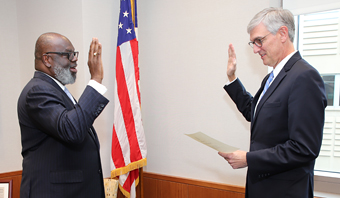 On August 19, U.S. District Judge Carlton W. Reeves ’89 was sworn in as the chair of the U.S. Sentencing Commission by Chief District Court Judge Dan Jordan ’93. Both judges serve in the U.S. District Court for the Southern District of Mississippi.
On August 19, U.S. District Judge Carlton W. Reeves ’89 was sworn in as the chair of the U.S. Sentencing Commission by Chief District Court Judge Dan Jordan ’93. Both judges serve in the U.S. District Court for the Southern District of Mississippi.
